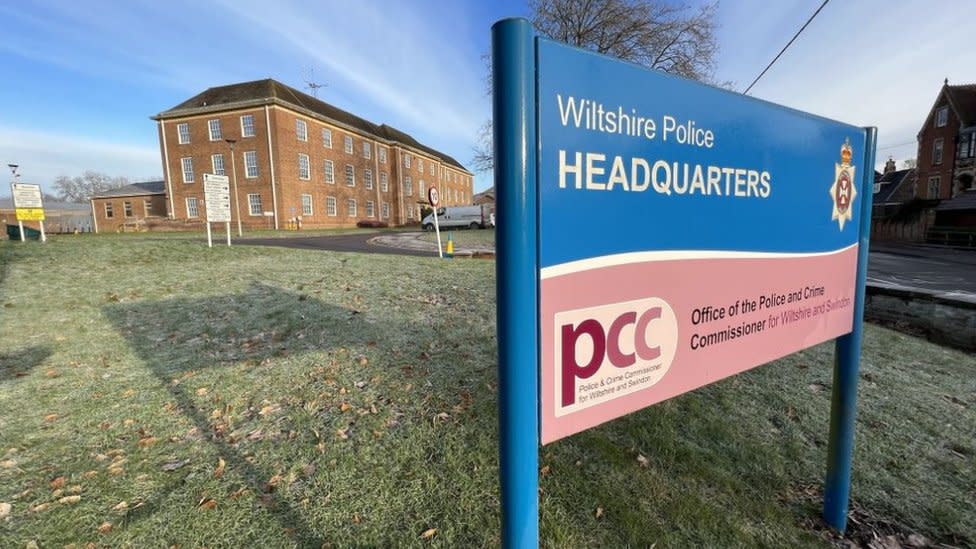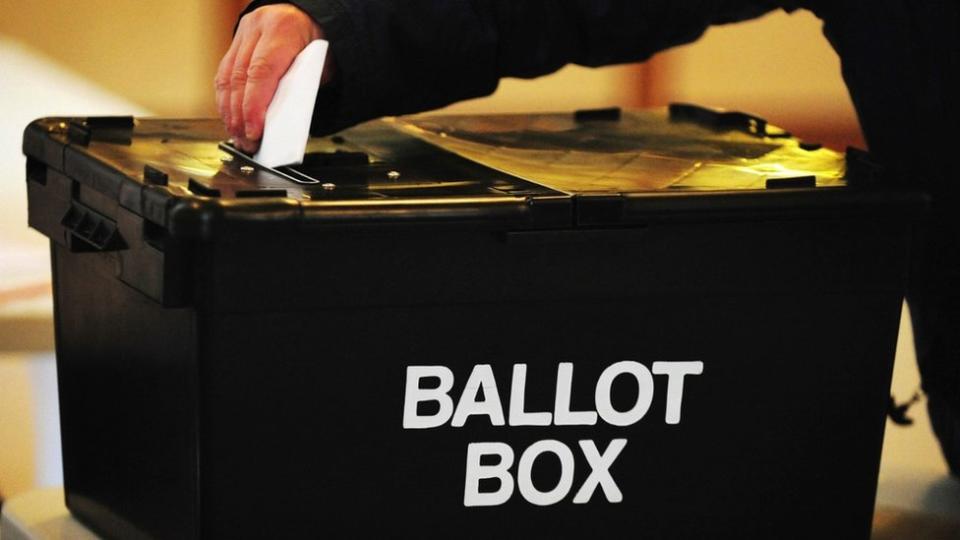Wiltshire Police and Crime Commissioner candidates announced

Four candidates are competing to be Wiltshire's next Police and Crime Commissioner (PCC) at the upcoming election on 2 May.
The position was first introduced in 2012 in a bid to reform policing.
Members of the public are given the opportunity to vote for a candidate every four years.
What does the Wiltshire PCC do?
The main role of the PCC is to ensure that Wiltshire Police is doing its job properly by serving the public and overseeing the strategic direction of the force through the Police and Crime Plan.
It is also the PCC's job to set the police budget, and to decide how much money the public should contribute to policing through council tax.
The PCC is also in charge of appointing the chief constable - who is currently Catherine Roper - and holding them to account for the performance of the force's officers and staff.
The PCC is answerable to the public and is expected to build and maintain trust by consulting with local people, the council and other organisations.
They are expected to maintain safety within the community and to reduce crime through means such as outreach programmes.
Who is standing for the role?
Three political parties are nominating candidates for the upcoming election, with one candidate standing as an independent.
More information on the candidates can be found here.

The incumbent police and crime commissioner, the Conservative Philip Wilkinson, is standing for election again.
Mr Wilkinson was elected as PCC on 19 August 2021.
He has served in the Royal Artillery, the Commando and Parachute Brigades and the Special Forces, for which he was awarded an MBE.
In addition, Mr Wilkinson is a research associate at Chatham House and a Member of the Royal Swedish Academy of Military Sciences.
Alan Hagger is standing for the Liberal Democrats and has represented Amesbury Town Council since 2023.
He grew up in South London before moving to Winchester and later to Amesbury.
Mr Hagger has 10 years of experience as Head of Strategic Commissioning for the Police and Crime Commissioner for Hampshire and the Isle of Wight.
Stanka Adamcova is Labour's candidate.
Ms Adamcova has a master's degree in International Relations from the University of Reading.
She is an experienced policy manager with a history of working in the public and private sector.
Mike Rees, who came second in the last PCC election, is standing as an independent.
Mr Rees previously lost to the current PCC by just under 3,000 in the second round of voting.
Born and raised in Wales, Mr Rees joined Wiltshire Police in 1984 aged 18.
He retired as a detective inspector in 2014 and set up several businesses specialising in helping vulnerable people.
Why was the PCC role created?
When the Conservatives and Liberal Democrats formed a coalition government in 2010, they agreed to making policing more accountable.
The coalition introduced reforms that included electing a PCC for every police authority in England.
The first PCC elections took place in 2012.

What is different about the elections this year?
The upcoming PCC election will use the first-past-the-post voting system.
The traditional system, which is used in general and local elections, appoints the candidate with the most votes.
Previously, PCCs have been elected using the supplementary voting system, which allowed votes to choose a second favourite candidate if they had one.
The winning candidate would have to pass 50% of the vote in order to win the election, sometimes using second preferences to secure the position.
Chloe Smith, the former minister of state for constitution and devolution, said the supplementary vote system was "confusing and over-complicated" compared to the "tried and tested" first-past-the-post system.
Critics, such as the Electoral Reform Society, argue that first-past-the-post is the least representative system.
Follow BBC Wiltshire on Facebook, X and Instagram. Send your story ideas to us on email or via WhatsApp on 0800 313 4630.

